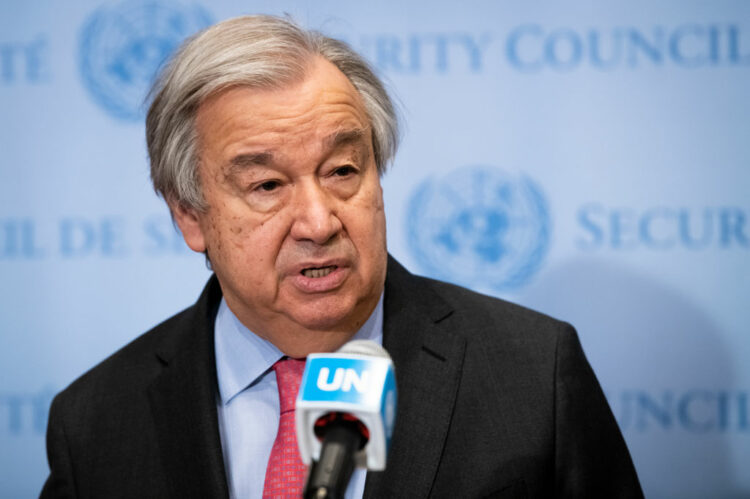UN Secretary-General António Guterres has encouraged all countries to increase their efforts to ensure that the world is prepared to face future health issues.
Guterres made the request in a message to honor the International Day of Epidemic Preparedness, which is observed annually on December 27 to raise awareness about epidemics.
The UN head recalled that the virus that causes COVID-19 was discovered three years ago, and that the costs had been terrible.
Since the pandemic, he said, millions of people have died and hundreds of millions have become ill.
“And economies have been shattered, health systems stretched, and trillions of dollars lost.
“Moreover, progress towards the Sustainable Development Goals (SDGs) has been “thrown off track”.
“Developing countries were often left to fend for themselves, shamefully denied the vaccines, tests or treatments they needed to protect their people,” the top UN official said.
According to him, COVID-19 will not be the last epidemic or pandemic humanity faces.
“As a global community, we must heed the harsh lessons of COVID-19 and make bold investments in pandemic preparedness, prevention and response,” he said.
He underscored the need for better surveillance “to detect and monitor viruses with epidemic potential”; resilient health systems supported by universal health coverage; and a “well-trained, well-equipped and well-paid” health workforces.
“We also need equitable access to vaccines, treatments, diagnostics and life-saving technology for all countries,” Guterres said.
He highlighted the need to “fight the scourge” of misinformation and pseudoscience with “science and fact-based information”, noting that a pandemic cannot be fought country by country.
“The world must come together. COVID-19 was a wake-up call,’’ the secretary-general stated.
The United Nations also emphasized the importance of a One Health strategy, which promotes the integration of human, animal, and plant health, as well as environmental and other important sectors.
He stated that international collaboration and multilateralism were critical in dealing with epidemics.
The UN system, particularly the WHO, plays a vital role in coordinating and supporting national, regional, and international efforts to respond to epidemics, as well as in preventing, mitigating, and addressing the effects of infectious diseases and epidemics – all with the goal of moving the 2030 Agenda forward.
However, the primary role and responsibility in addressing global health concerns rests with governments and relevant stakeholders, particularly women, who make up the majority of the world’s health workers.
UN Member States have agreed to ensure inclusive, equal, and non-discriminatory participation, with a particular focus on those who are vulnerable or in vulnerable conditions with the greatest risk of epidemic infection.
(NAN)









